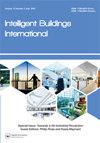Research on the application of RAGA-PP projection model in sustainable architecture: evaluation and optimization
IF 1.7
Q2 CONSTRUCTION & BUILDING TECHNOLOGY
引用次数: 0
Abstract
ABSTRACTThis paper presents an evaluation model for the sustainable development of the construction industry based on the project process model and improved real–coded accelerated genetic algorithm (RAGA–PP model) A comprehensive and representative evaluation index system is established, and the simulation curve conversions are effective with good conversion effect The designed evaluation model can assess the sustainable development of the construction industry both vertically and horizontally and is split into different dimensions for the evaluation process. With comprehensiveness, reliability, representativeness, and objectivity, the proposed model effectively evaluates a regional construction industry's sustainable development and supports its growth direction The results indicate the RAGA–PP model's strong predictive performance and reliability The study also constructs an evaluation system and conducts dimensionless treatment on different indicators, providing valuable insights into understanding and evaluating the sustainable development of the construction industry.KEYWORDS: Accelerated genetic algorithmprojection pursuitsustainableconstructionRAGA-PP projection model Disclosure statementNo potential conflict of interest was reported by the author(s).Data availability statementThe data that support the findings of this study are available from the corresponding author, upon reasonable request.Additional informationNotes on contributorsRui DengRui Deng obtained her Bachelor's degree in engineering costing from Qingdao University of Technology in 2012. Presently, she is working as a lecturer in the department of building data management, Chongqing Metropolitan College of Science and Technology. Her areas of interest are project management, intelligent construction, building cost and risk management.RAGA-PP投影模型在可持续建筑中的应用研究:评价与优化
摘要基于项目过程模型和改进的实数编码加速遗传算法(RAGA-PP模型),提出了建筑业可持续发展的评价模型,建立了全面、具有代表性的评价指标体系。所设计的评价模型可以对建筑业的可持续发展进行纵向和横向的评价,并将评价过程分为不同的维度。该模型具有全面性、可靠性、代表性和客观性,有效地评价了区域建筑业的可持续发展,支持了区域建筑业的增长方向。结果表明,RAGA-PP模型具有较强的预测性能和可靠性。为理解和评估建造业的可持续发展提供宝贵的见解。关键词:加速遗传算法投影追求可持续构建raga - pp投影模型披露声明作者未报告潜在利益冲突。数据可用性声明支持本研究结果的数据可在合理要求下从通讯作者处获得。邓睿,2012年毕业于青岛理工大学工程造价专业,获学士学位。现任职于重庆城市科技学院建筑数据管理系讲师。她的研究领域包括项目管理、智能建筑、建筑成本和风险管理。
本文章由计算机程序翻译,如有差异,请以英文原文为准。
求助全文
约1分钟内获得全文
求助全文
来源期刊

Intelligent Buildings International
CONSTRUCTION & BUILDING TECHNOLOGY-
CiteScore
4.60
自引率
4.30%
发文量
8
 求助内容:
求助内容: 应助结果提醒方式:
应助结果提醒方式:


